| Established | 2018 |
|---|---|
| Types | non-governmental organization |
| Location | Tigray Region |
| Country | Ethiopia |
Seb Hidri Civil Society of Tigray is a non-governmental organisation based in Tigray Region in Ethiopia, created in 2018. [1]
| Established | 2018 |
|---|---|
| Types | non-governmental organization |
| Location | Tigray Region |
| Country | Ethiopia |
Seb Hidri Civil Society of Tigray is a non-governmental organisation based in Tigray Region in Ethiopia, created in 2018. [1]
Seb Hidri was created in 2018. [1]
Seb Hidri describes its aims as promoting democracy, justice and active citizenship to defend the rights of Tigrayans "through peaceful and nonviolent discourse", and the promotion and defence of Tigrayan sovereignty and territorial integrity. [2] [1]
In May 2020, Bahlbi Y. Malk described Seb Hidri as promoting Tigray independence and tending to promote the extension of Tigray to include Eritrea, based on a vision of ethnic homogeneity between Tigrinya speaking people in Tigray Region and those in Eritrea. [3]
In September 2019, Mehari Yohannes, who had been a member of the Tigray People's Liberation Front (TPLF) until 2016, was director of Seb Hidri. According to Getachew Gebrekiros Temare, writing in Ethiopia Insight , Mehari used Seb Hidri to promote political independence for Tigray, "preach[ing] a secessionist gospel". [4]
As of January 2020 [update] , Dr. Goytom Aregawi (or Goitom) was director. [1]
In 2019, Seb Hidri's membership included "youths, academics, and veteran fighters" and was "ideologically diverse". Some members promoted independence for Tigray. [4]
On 31 March 2019 (Mägabit 22, 2011), Seb Hidri held a town meeting in Gere-alta. Some of the participants in the meeting were detained, fired or were subjected to other harassment by local authorities following the meeting. Seb Hidri interpreted the attacks as an attempt to frighten the participants from publicly discussing human rights, in violation of the 1995 Constitution of Ethiopia. [5]
Seb Hidri strongly promoted holding an election in Tigray Region, helping to modify Tigray Region electoral law. [1] Seb Hidri was banned from observing the 2020 Tigray regional election itself by the Tigray Region electoral commission [6] after a complaint by TPLF that Seb Hidri "engag[ed] in illegal activities". Meressa Tsehaye of the electoral commission stated that the TPLF had provided proof of the illegal activities. Goytom Aregawi of Seb Hidri stated that no details of the claim were provided. [1]
On 21 February 2021, Seb Hidri described the first 110 days of the Tigray War as "a political crisis [that] ended up [as] one of the bloodiest wars in the world, and the first conventional war [on] African soil conducted with such a massive scale of high-precision fighter drone missile bombardment." It stated that the events of the first 110 days were "mass killings, rampant rapes, disappearances, internal displacement and migration, looting and destruction of health facilities and schools, intentional killing of domestic animals, burning of crops, blockage of humanitarian aid, communication blackout[s], [and] electricity blackout[s] in most parts of Tigray." Seb Hidri criticised the international community for "appalling silence and inaction" that "[gave] a green-light [for] ongoing genocide on ethnic Tigray[ans]". The organisation called for immediate peace process actions by the international community; a ceasefire; opening of access for humanitarian aid and international media; independent investigations of war crimes; withdrawal of the Eritrean Defence Forces and Amhara Region forces from Tigray Region; withdrawal of the Ethiopian National Defense Force (ENDF) from Tigray Region and its replacement by a United Nations peacekeeping force; restoration of telecommunications and electric power; investigations into the extrajudicial killings of journalists and politicians including Seyoum Mesfin; the release of all political prisoners; and a UNESCO-led investigation of the destruction of cultural heritage. [7]
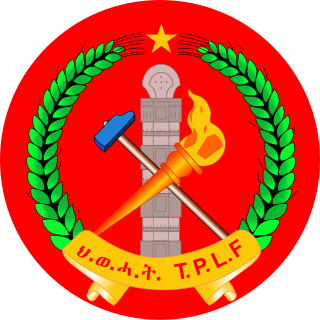
The Tigray People's Liberation Front, also called the Tigrayan People's Liberation Front, is a leftist, ethnic nationalist, paramilitary group, and the former ruling party of Ethiopia. It was classified as a terrorist organization by the Ethiopian government from May 2021 until its removal from the list in March 2023. In older texts and Amharic publications, it is known as Woyane or Wayane.
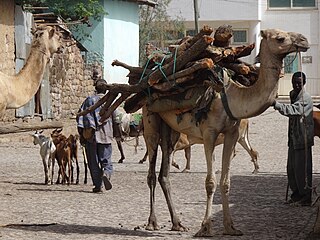
Shire, also known as Shire Inda Selassie, is a city and separate woreda in the Tigray Region of Ethiopia. The city is the administrative center of the Semien Mi'irabawi Zone. It was part of Tahtay Koraro district.
Abay "Amha" Tsehaye was an Ethiopian politician and a prominent personality in the Ethiopian political discourse. He was active in the political scene from the early 1960s up to late 2018, initially as one of the founding members of the TPLF, followed by important positions from 1990 to 2018 within the EPRDF, which led the Ethiopian government, after which he retired and moved to live in Axum and Mekelle in Tigray.

La'ilay Adiyabo is a woreda in the Tigray Region of Ethiopia. Part of the North Western Zone, La'ilay Adiyabo is bordered on the south by Tahtay Koraro, on the southwest by Asigede Tsimbela, on the northwest by Tahtay Adiyabo, on the northeast by the Mareb River which separates it from Eritrea, on the east by the Central Zone, and on the southeast by Medebay Zana. The administrative center of this woreda is Addi Daero; other towns in La'ilay Adiyabo include Addi Nebreid.

The Tigray War was an armed conflict that lasted from 3 November 2020 to 3 November 2022. The war was primarily fought in the Tigray Region of Ethiopia between the Ethiopian federal government and Eritrea on one side, and the Tigray People's Liberation Front (TPLF) on the other.
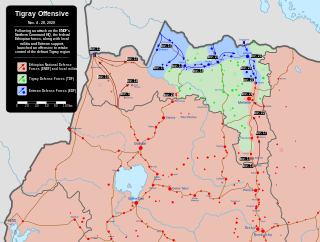
The Mekelle offensive was a military campaign fought between the armed forces of Ethiopia and the Tigray Region to reach the city of Mekelle in the Tigray Region, from 17 November to 28 November 2020. It was part of the Tigray War.
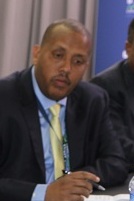
Getachew Reda Kahsay is the Chief Administrator of the Interim Regional Administration of Tigray since the Office of the Prime Minister of Ethiopia announced his appointment on 23 March 2023. Before assuming power as chief administrator, he was a longtime advisor to the former president of the Tigray Region, Debretsion Gebremichael.
This timeline of the Tigray War is part of a chronology of the military engagements of the Tigray War, a civil war that began in the Tigray Region of Ethiopia in early November 2020.
On 3–4 November 2020, forces loyal to the Tigray People's Liberation Front (TPLF) launched attacks on the Ethiopian National Defense Force (ENDF) Northern Command headquarters in Mekelle and bases in Adigrat, Agula, Dansha, and Sero in the Tigray Region, marking the beginning of the Tigray War. The Ethiopian federal government stated that these attacks justified the ENDF's military action against the TPLF, which, at the time the attacks occurred, held control over the Tigray Region. The TPLF described the action as "a pre-emptive strike."
The Tigray Democratic Party is an opposition party in the Tigray Region of Ethiopia.
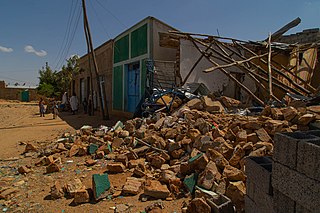
All sides of the Tigray War have been repeatedly accused of committing war crimes since it began in November 2020. A September 2022 report by the UN found evidence of widespread "war crimes and crimes against humanity" committed by all parties, in particular, the Ethiopian federal government, the State of Eritrea and the Tigray People's Liberation Front (TPLF)."

The Tigrayan peace process encompasses the series of proposals, meetings, agreements and actions that aimed to resolve the Tigray War.
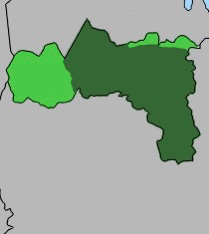
The Tigray Defense Forces, colloquially called the Tigray Army is a paramilitary group located in the Tigray region of Ethiopia. It was founded by former generals of the Ethiopian Military in 2020 to combat federal forces enforcing national government mandates in the Tigray region, culminating in 2020 with the outbreak of the Tigray War. The TDF has made use of guerilla tactics and strategies. Human rights groups including Amnesty International and Human Rights Watch have reported that the TDF has committed war crimes against civilians including gang rape and extrajudicial killing during their occupation of both the Afar and Amhara regions. According to the Ethiopian Ministry of Justice, TDF combatants have been found liable for upwards of 540 civilians casualties. as of 28 December 2021.
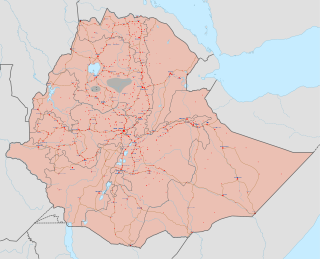
Following the 2018 dissolution of the ethnic federalist, dominant party political coalition, the Ethiopian People's Revolutionary Democratic Front, there was an increase in tensions within the country, with newly resurgent regional and ethnically based factions carrying out armed attacks on military and civilians in multiple conflicts throughout Ethiopia.

The EHRC–OHCHR Tigray investigation is a human rights investigation launched jointly by the Ethiopian Human Rights Commission (EHRC) and the Office of the United Nations High Commissioner for Human Rights (OHCHR) in mid-2021 into human rights violations of the Tigray War that started in November 2020. The EHRC–OHCHR joint investigation team's report was published on 3 November 2021.
This Timeline of the Tigray War is part of a chronology of the military engagements of the Tigray War, a civil war that began in the Tigray Region of Ethiopia in early November 2020.
This Timeline of the Tigray War is part of a chronology of the military engagements of the Tigray War, a civil war that began in the Tigray Region of Ethiopia in early November 2020.

Since the start of Tigray War in November 2020, the Eritrean government has been heavily involved in the war against the Tigray People's Liberation Front (TPLF) in support of the Ethiopian government.
On 2 November 2022, a peace treaty was signed between the government of Ethiopia and the Tigray People's Liberation Front (TPLF), where both parties agreed to a "permanent cessation of hostilities" to end the Tigray War. The agreement was made effective the next day on 3 November, marking the two-year anniversary of the war.